Syrian deputy FM denies forced starvation, chemical attacks by regime
May 14, 2014 -- Updated 1159 GMT (1959 HKT)
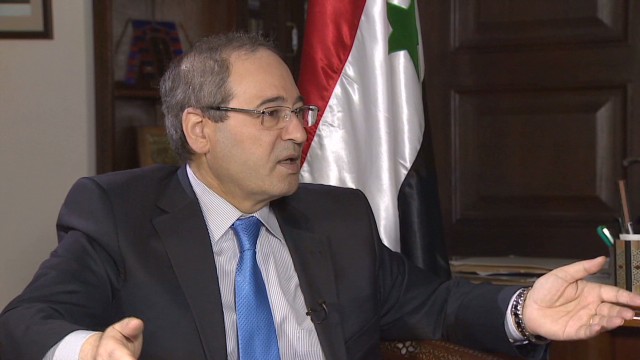
Mekdad: 'Chlorine gas never been used'
Damascus, Syria (CNN) -- Chemical attacks with chlorine gas. Barrel bombs dropped from regime helicopters. Syrians starved into submission in opposition-controlled areas.
The alleged assaults by
the Syrian government against its own people are atrocious. But in an
exclusive interview with CNN's Frederik Pleitgen, the country's deputy
foreign minister says such claims are rubbish.
"I assure you 100% that chlorine gas has never been used by the government," Deputy Foreign Minister Faisal al Mekdad said.
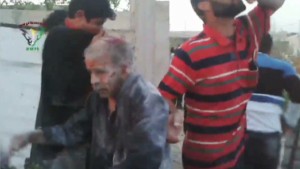 Chlorine gas attack alleged in Syria
Chlorine gas attack alleged in Syria
His assertion came shortly after Human Rights Watch
said it had strong evidence that showed regime forces carried out a
chlorine gas attack in the rebel-held village of Kfar Zeita. According
to the rights group, 11 people were killed and 500 were injured in three
towns following the gas attack.
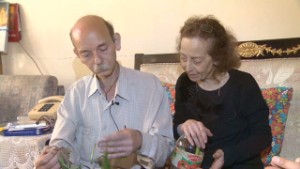 Survivors recount life under siege
Survivors recount life under siege
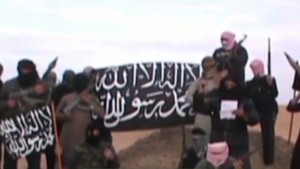 Warning to US: Terrorists swarming Syria
Warning to US: Terrorists swarming Syria
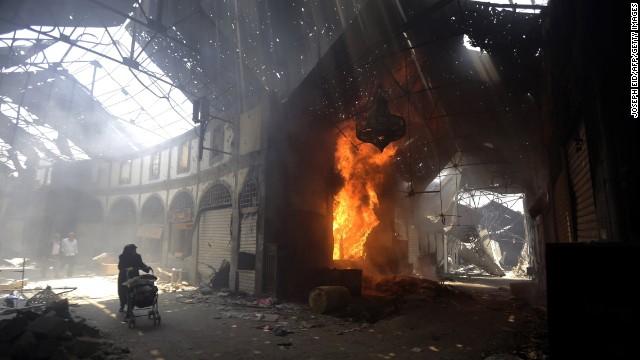 Photos: Syrian civil war in 2014
Photos: Syrian civil war in 2014
But Mekdad acknowledged that the government is not fighting lightly against opposition forces.
"My friend, we shall not
attack them with flowers, because they are not attacking us with
flowers," he said. "They are attacking with most sophisticated weapons,
given to them by the United States, given to them by Europe, given to
them by Turkey, given to them by the Saudis and others."
Last September, a U.S. official said CIA-funded weapons have started flowing to Syrian rebels.
A rebel leader told CNN at the time that he "can't talk about weapons," though he did stress that opposition forces were getting help.
"We are getting now a lot
of support from our American friends, but I can't talk in detail about
all kinds of the support," he said.
Claims of forced starvation
Mekdad also vehemently
denied claims that the regime has been cutting off food access to people
in Homs, which has been an opposition stronghold during much of the
country's 3-year civil war.
"We are not starving
anybody. We are trying to reach all those civilians under the control
(of the rebels). And on different occasions, many convoys carrying
humanitarian aid have gone but were turned back by the terrorist
groups," Mekdad said.
The Syrian regime has consistently referred to opposition fighters as "terrorists."
"If they are speaking
about (the) starving of terrorism and terrorists, yes we have to do our
best, and I think this is our right to do it," Mekdad added.
Botched truce
A truce began May 7 in
Homs, and opposition fighters and their families there were evacuated to
Addar al-Kabira, according to the opposition Syrian Observatory for
Human Rights.
But government forces shelled Addar al-Kabira this week, according to the opposition.
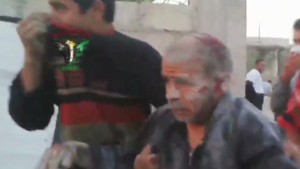 Report: Strong evidence Syria used gas
Report: Strong evidence Syria used gas
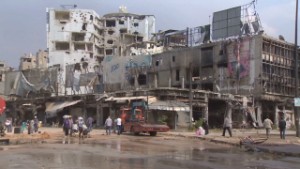 Cleanup starts in Homs after truce
Cleanup starts in Homs after truce
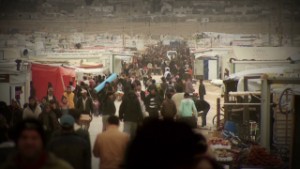 The plight of Syria's refugees
The plight of Syria's refugees
"The regime's shelling
of the town of Addar al-Kabira north of Homs, to where rebels of Homs
retreated in line with a deal organized by the U.N., makes evident the
falsity of the truces that the Assad regime seeks to promote," Nasser
al-Hariri, a member of the Syrian Coalition, said in a statement
Tuesday.
Originally, the
opposition had agreed to allow aid into pro-government neighborhoods in
Aleppo, both Shiite enclaves, in exchange for the safe passage of
fighters out of Homs.
Election coming up
Despite the ongoing war
that has killed more than 100,000 people, Mekdad said the country is
"absolutely" fit to hold a presidential election on June 3.
When asked how Syrians
in war-torn Aleppo would be able vote, the deputy foreign minister
lambasted the United States and European countries.
"This double standard by
certain ... European countries and the United States among others --
they don't want anything to move in Syria. They don't want legitimacy in
Syria. They want the disintegration of this country," Mekdad said.
"Or, in fact if we have
to take into full consideration what they want: They don't want Syria to
exist, or they want to hand Syria over to terrorist groups."
The United Nations has asked the government to reconsider the election as the carnage continues to mount every day.
But even if Syria proceeds with a presidential vote, the election might not yield any significant change.
President Bashar
al-Assad's family has had a tight grip on power in Syria for the past 43
years. Al-Assad succeeded his father in 2000 and won a second term in
2007, unopposed.
Al-Assad is running again this year.
Frederik Pleitgen reported from Damascus;
Holly Yan reported and wrote from Atlanta. CNN's Salma Abdelaziz and
Barbara Starr also contributed to this report.
No comments:
Post a Comment